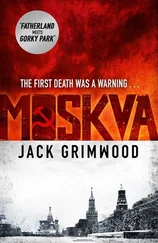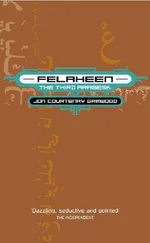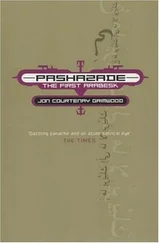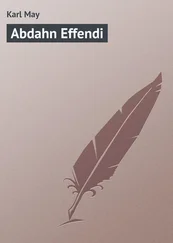The senior NCO swallowed a smile. He was old enough to know the voice of his old commander, the major’s father, a ruthless bastard but a highly efficient one. As commanding officers went he was good, but the sergeant wouldn’t have wanted the man for his father.
“No, sir. Absolutely not, sir.” He snapped out a salute like the rawest, most frightened recruit and swung on his heels, the other NCOs straightening up, reassured now the decision had been made.
And there matters would have ended if Amil hadn’t insisted on taking a step forward to object. The rest had gone down in legend. Muttered by the General’s enemies as proof of his ruthlessness and spoken openly by his friends as proof of the same. Amil died with a mocking smile on his face and a bullet between the eyes from his brother’s gun.
Major Koenig left the body where it dropped.
By the time the major returned to the farmhouse that evening, walking under a white flag of truce, Amil’s body had been carried away and dumped with others in a pit dug into the terraces by a thin girl on a tractor. He came alone, unarmed, and stood silent and uncomplaining as rough hands searched him before letting him inside.
The ground floor of the farmhouse was crowded with the cream of the Ragged Army’s generals, their own uniforms anything but that. Some of the junior officers wore battledress stripped from UN observers but most had uniforms cut and sewn by local tailors along the way.
A few were imported, bought via middlemen from military tailors in Algiers, Berlin or Stambul. Two officers were even dressed in the uniform of Major Koenig’s regiment. One had, until that afternoon, been his aide de camp and the other the major had thought dead. Certainly the man had never returned from the morning’s reconnaissance.
Amused eyes watched him notice them.
A charcoal fire burned in the potbellied stove he’d been forced to abandon, heating a brass jug of fresh coffee. A hurricane lamp lit the room against advancing night.
Against centuries of tradition, Major Koeing was not offered a small cup of sweetened coffee or a brass sheesha filled with apple tobacco. He sat unasked on the only chair not in use and when he requested a glass of water to wet his throat this was refused. The major was pleased. It made what came next easier.
He was there to negotiate the surrender of El Iskandryia to the Ragged Army. General Mahdi had not bothered to come in person. Rumour said the jihad leader was too busy imposing his rule on Al Qahirah, where cinema doors had been bolted tight, bars burned and women whipped in public for going out with their heads uncovered. Schools for girls had been closed, female doctors banned from working, and aid workers of both sexes given twenty-four hours to leave the country.
Berlin, Paris and Washington were too busy being outraged to have time for what was about to happen on a hill to the south of Iskandryia.
Camped on terraces that had been cut into the slope before Islam or Christianity even existed, the Ragged Army crouched round fires lit with dried dung or branches ripped from the ancient olive grove. Food had been plentiful in Al Qahirah and most were no longer hungry. But they lit fires and killed any goats they could scavenge because that was what they did. Habit can take only weeks to become tradition and they’d had years. First in the Sudan, then moving north.
“Tomorrow and the next day we march,” their leader told Major Koenig. “The evening after that we arrive at El Iskandryia. Friday we pray. Saturday you bring out the old man to make his surrender.”
Fat chance, thought the major. The Khedive was too ill to leave his bed. Besides, he was Khedive, the old man would die rather than surrender his city. “And the terms?” Major Koenig asked.
There were no terms. The city surrendered. That was all there was to it. Those whom the Ragged Army let live were those who would live. No promises would be made.
Same terms they gave Al Qahirah.
“I agree.” Major Koenig held out his hand and when this was not taken, bowed slightly and clicked his heels, Berlin style, purely for the pleasure of seeing hatred flood the faces of his enemy. “The city will be ready for you,” he added.
Snapping a drill-perfect salute, he walked to the door, stopping only to reach into the emptiness where a light switch should be and touch together two wires.
The resulting blast broke the major’s right ulna in two places and dislocated his shoulder. Though what really hurt was the length of light fitting that scraped its way across his hipbone, fracturing his pelvis.
The bomb in the empty striplight was technologically primitive. All the same, it worked better than the major had been expecting. And while the West had at its disposal numerous kinds of self-firing plastique, not to mention those little synthetic viruses they were so busy denying, he’d had to rely on a block of Semtex, a basic detonator, ball bearings, batteries from a mobile and some recycled flex. All of it, excluding the ball bearings obviously, well past its use-by date.
The light fitting killed everyone standing under it; just not all at the same time. The luckiest deaths were immediate. Necks snapped or skulls broken open, hearts pierced by shattered ribs. Under heavy fire from his own side, who’d advanced as ordered at the sound of the explosion, the major got trucked to a camp in Al Qahirah, a shard of light fitting still embedded in his hip, his broken arm locked tight in a battle dressing. The fellah from the Ragged Army who’d pulled Major Koenig from the rubble thought the officer was one of her own.
“And General Mahdi. If I remember . . .” The Senator paused, wondering how she should put it delicately. “Had his hands cut off . . .”
“Among other things.”
That was three weeks later, in Al Qahirah. By then the Ragged Army had mostly surrendered, its mercenary core either dead, under arrest or rapidly selling each other out in return for immunity. Major Koenig was right. Taking out the enemy’s generals had been the solution.
And Senator Liz had finally remembered enough of the General’s history to wish she was somewhere else. What type of man took visiting dignitaries to see where he’d shot his own brother? The answer was obvious. Someone like Koenig Pasha.
“They never did find who murdered General Mahdi, did they?”
“No,” said the General, his eyes holding those of the American woman, “you’re right. They never did . . .”
“And Colonel Abad?” She named Mahdi’s infamous adviser, Washington’s bête noire .
“In paradise, no doubt,” said Koenig Pasha. “Or maybe hell.”
“Hey.” Hani sounded so cross that Ifritah’s ears flicked back and Hani had to stroke the cat to get her purring again. “I was watching that . . .”
“Sorry,” said Raf, clicking his fingers to change channels. “I need to see what other people are saying about what’s happening . . .”
“Happening where?”
“Here.”
Hani raised her eyebrows but stayed put as Raf banged down his briefcase and turned his attention back to the screen. Heute in Berlin had nothing and neither did the US feeds, but that wasn’t surprising; both countries were notoriously insular. And Iskandryia’s own Ferdie Abdullah was concentrating on a second arson attack on a nightclub opposite Misr Station.
Raf found what he wanted on Paris—la Ronde, which segued straight from a snippet on the Prince Imperial’s first term at St. Andrews to a moderately gloating roundup of problems to be raised when representatives of the Kaiser and the Sublime Porte finally held separate meetings with a US arbitrator, to discuss renewing the Osmanli Accord, the treaty that defined spheres of economic influence in North Africa, the Middle East and the Balkans.
Читать дальше












